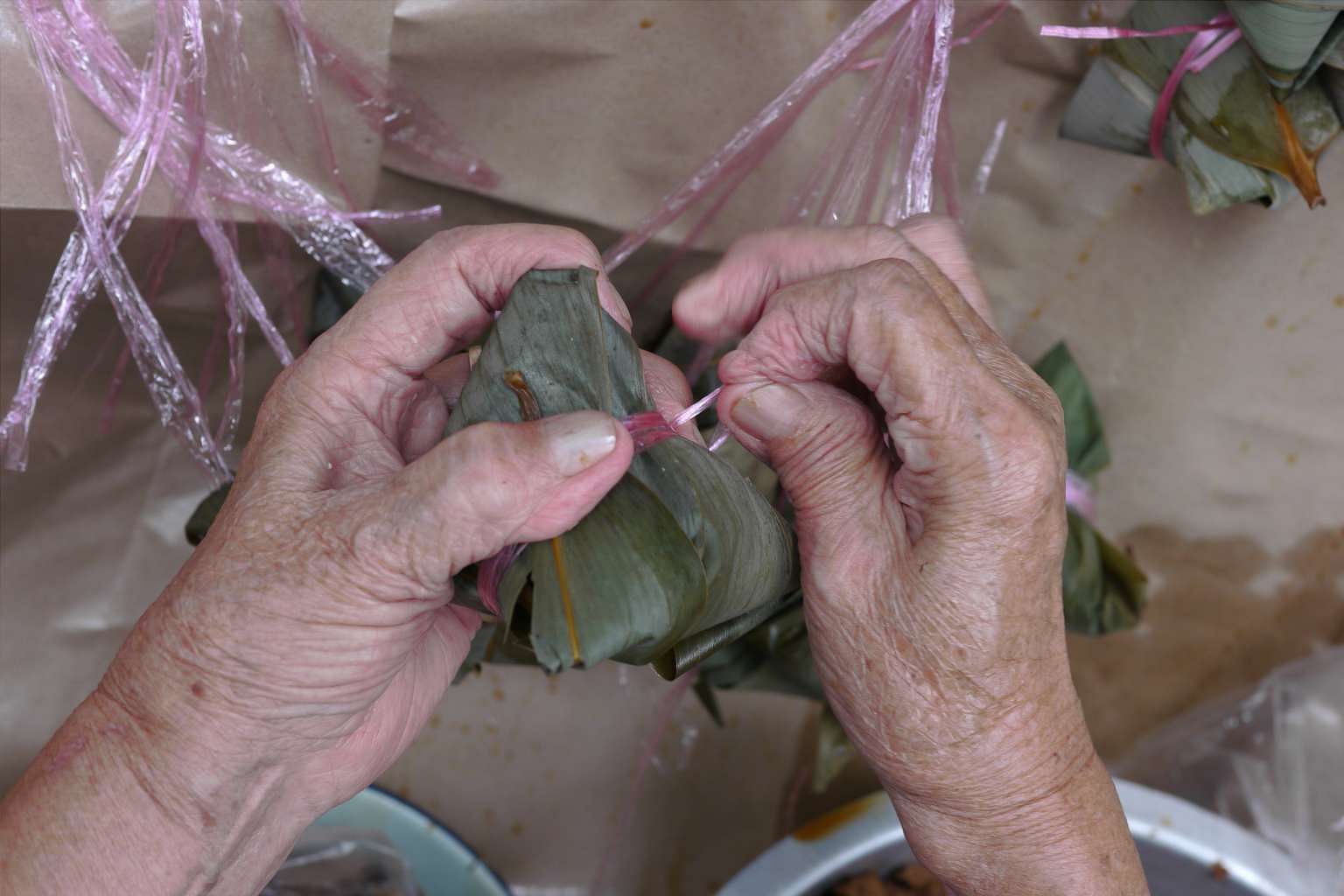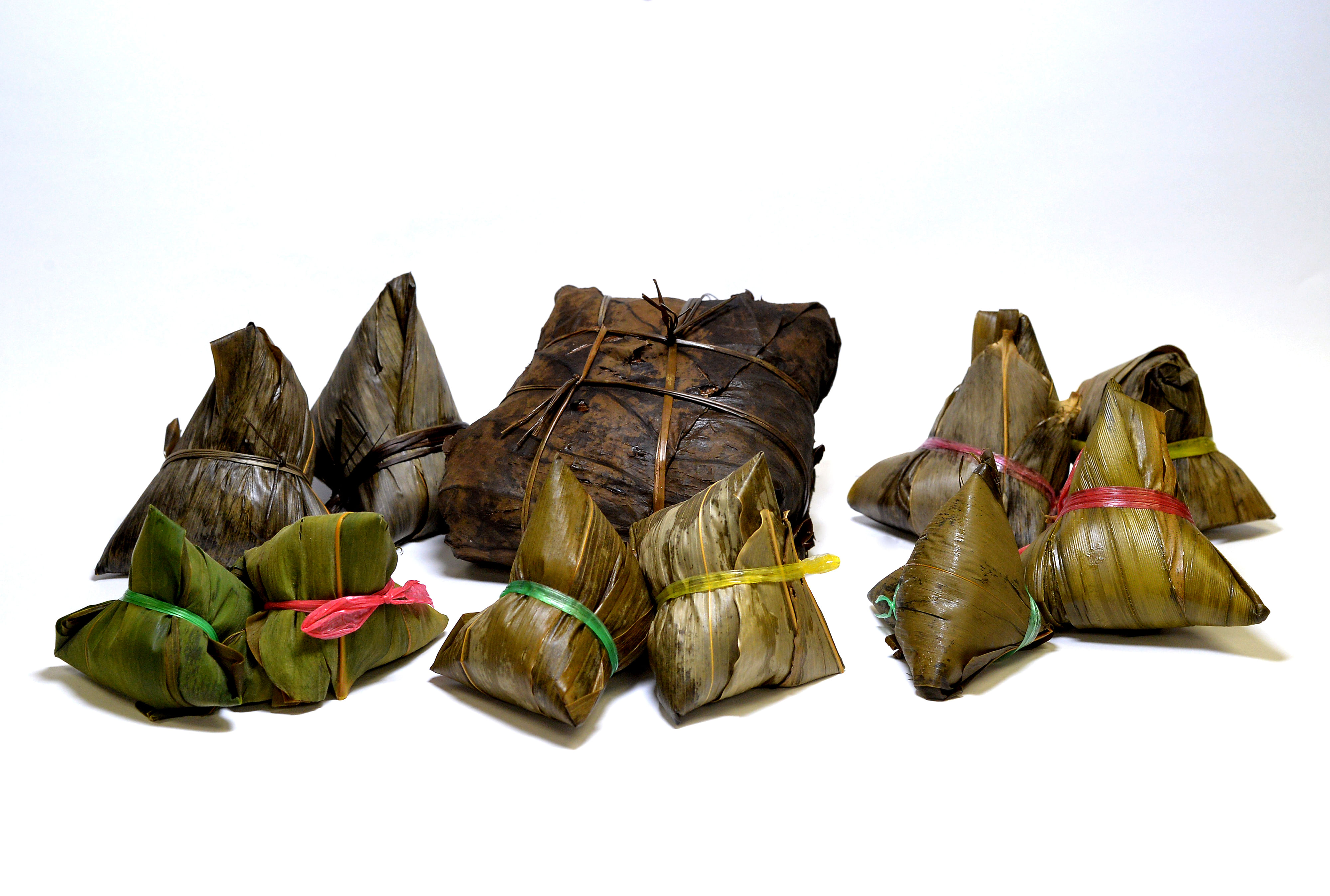askST: Is it unhealthy to eat rice dumplings as they are cooked with raffia strings?
Sign up now: Get ST's newsletters delivered to your inbox

The bak zhang (rice dumpling) is typically secured with raffia string.
PHOTO: ST FILE
Reader Boey San Fei wrote in to AskST: "Is it unhealthy and a cancer risk to eat bak zhang (rice dumplings) as they are cooked for two or more hours with raffia (plastic) strings?"
(This article was published on May 19, 2016.)
SINGAPORE - Although there are no studies on whether cooking with raffia string could pose a danger to health, dietitians here advise using other alternatives.
Bak zhang (rice dumplings) should not be cooked with raffia string as this material is not made for cooking.
Chemicals from the raffia string might melt into the boiling water and be absorbed by the food, said Dr Lim Su Lin, chief dietitian at the National University Hospital.

The bak zhang (rice dumpling) is typically secured with raffia string.
PHOTO: THE NEW PAPER FILE
Reed strings that are made from plants or strings/twine made from 100 per cent cotton should be used instead, she said.
Ms Bibi Chia, principal dietitian at the Raffles Diabetes and Endocrine Centre, also recommends using food-safe meat string or cotton for this purpose.
When it comes to the bak zhang ingredients, it may surprise you to find out that when compared to normal white rice, the caloric and carbohydrate content in glutinous rice is lower.
However, bak zhang is often made with high salt and high fat ingredients such as fatty pork and salted egg, said Ms Chia.
The nutritional value of a typical bak zhang, made of glutinous rice filled with fatty meat, chestnut and chopped mushroom, wrapped by leaves and steamed:
Weight per serving: 185g
Energy: 386.65kcal
Protein: 11.84g
Total fat: 13.51g
Saturated fat: 5.37g
Dietary fibre: 4.63g
Carbohydrate: 54.58g
Cholesterol: 101.75mg
Sodium: 680.8mg
This can be made healthier by replacing the fatty ingredients with lower sodium and saturated fat ones such as using unpolished glutinous rice and filling the dumplings with beans, chestnuts and lean meat, said Ms Chia.
Weighing in on the issue, the Agri-Food and Veterinary Authority of Singapore (AVA) said while it understands consumers' concerns over food safety, the migration of chemicals from plastics (raffia string) to foods would only be significant when there is direct contact between the food and plastic.
Chemical contamination of the dumplings is extremely low as the raffia strings used to tie glutinous rice dumplings do not come into direct contact with the rice, said a spokesman for AVA.
The dumplings are also cooked in a large volume of water. The concentration of any chemicals that may have migrated into the water during the cooking process would be extremely low due to dilution, the spokesman added.
Moreover, glutinous rice dumplings are not staples consumed on a daily basis. Hence, consumers need not be unduly worried about the adverse health effects as they are not exposed to long term and high concentrations of migrated chemicals from plastic strings in their consumption of glutinous rice dumplings during the Dragon Boat Festival, she added.
More askST stories here.
This story was updated with AVA's response.
From April 2019, food-related functions under AVA, the Health Sciences Authority, and National Environment Agency were consolidated under the Singapore Food Agency. There's more information on dumplings and plastic strings here.



